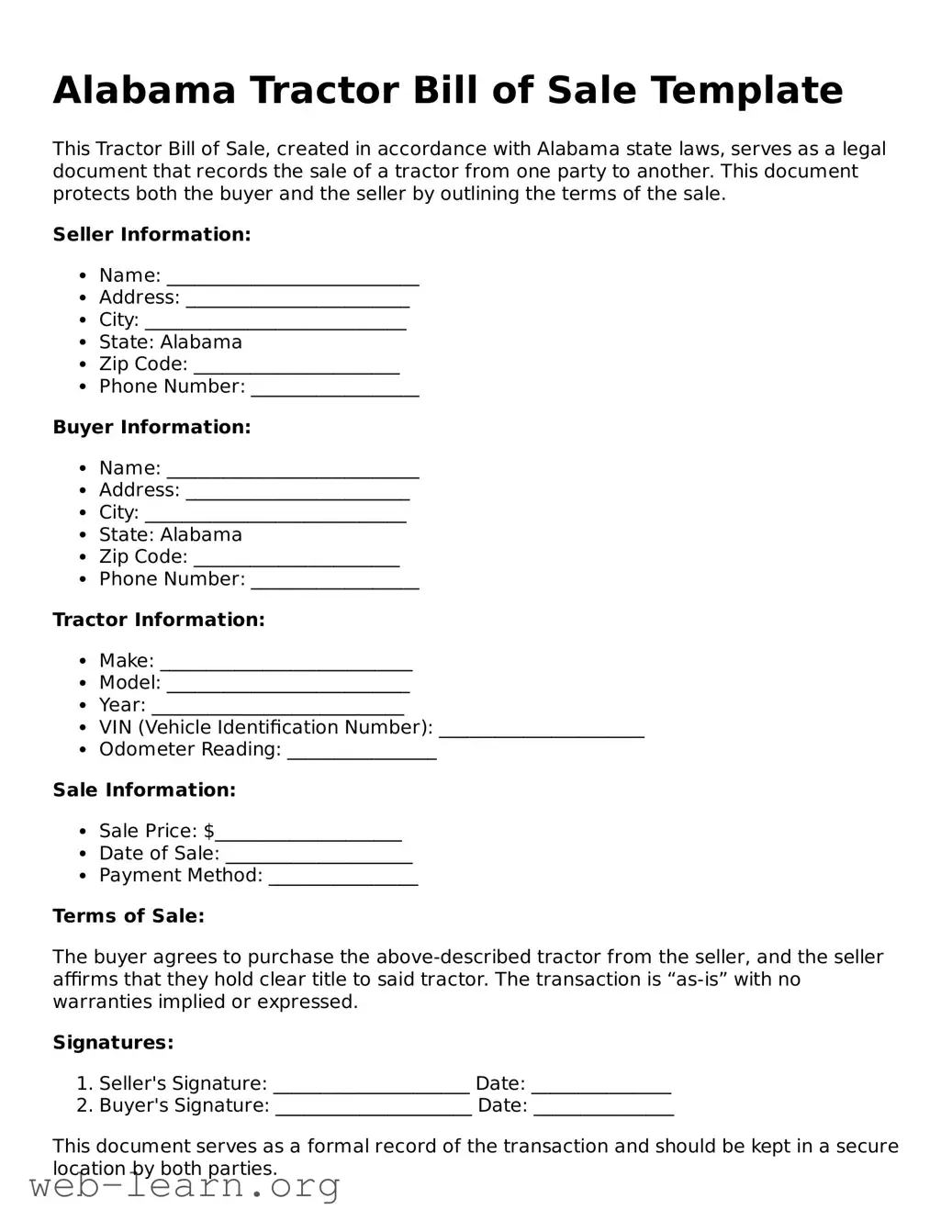Filling out the Alabama Tractor Bill of Sale form is an important step in transferring ownership of a tractor. However, many people make mistakes that can lead to complications later. One common mistake is failing to include all necessary information. Essential details like the seller's and buyer's names, addresses, and contact information must be clearly stated. Omitting any of this information can render the document incomplete, causing delays in the transfer process.
Another frequent error is neglecting to specify the tractor's identification number. The Vehicle Identification Number (VIN) is crucial for accurately identifying the tractor. Without it, future ownership claims may arise, and tracing the tractor's history could become problematic.
Incorrectly stating the sale price is a mistake that can have financial implications. A buyer should ensure that the price reflects the agreed-upon amount accurately. An incorrect price can lead to issues in registering the tractor with the state, as it may appear misleading or inconsistent with the market value.
Additionally, some individuals fail to date the bill of sale properly. A date is essential because it establishes when the ownership transfer occurred. Without a proper date, legal disputes can arise over ownership, especially if the transaction is questioned at a later time.
Signatures are another area where mistakes often happen. Both the seller and buyer must sign the document. Sometimes, individuals overlook this, thinking it is an unimportant detail. However, missing signatures can invalidate the sale, leading to disputes about whether the transaction actually took place.
Finally, not keeping copies of the completed bill of sale is a mistake many make. After signing, it's crucial for both parties to retain a copy for their records. This document serves as proof of sale and is invaluable in case any questions arise regarding the ownership or condition of the tractor.
